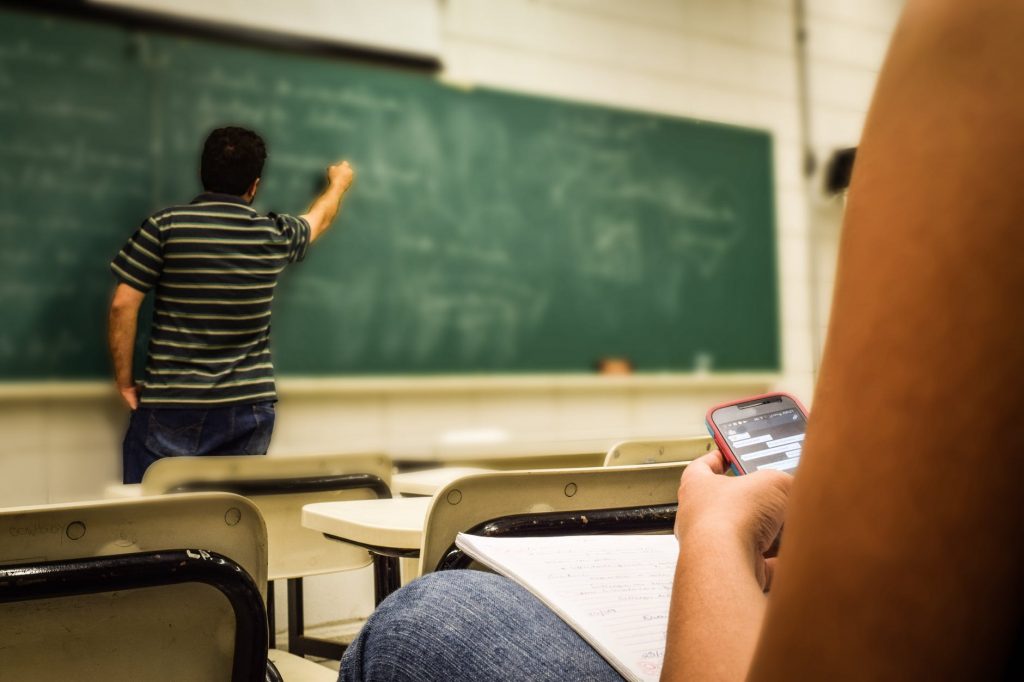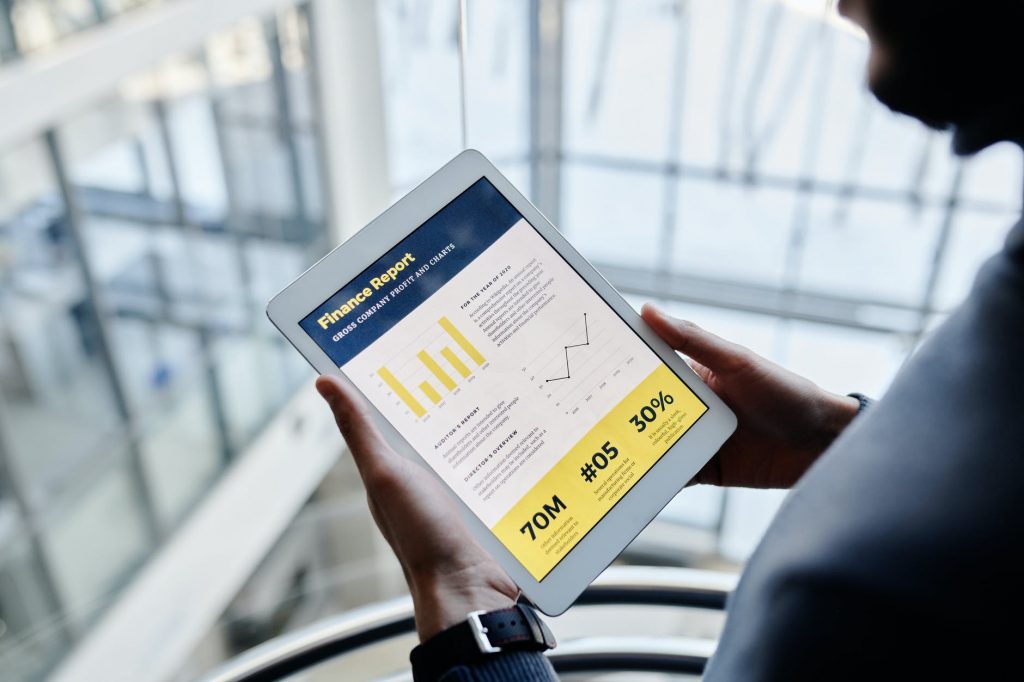Personal finance for high school students is an important topic that can help students through high school and beyond. By learning how to balance a checkbook, pay bills, save money, and understand credit cards and debt, students can ensure a solid financial future.
Here we will explain everything which will help you to understand the basics of why personal finance is important for high school students largely. From that understanding, you can share your knowledge with others as well. So stay tuned till the end.
It’s important that you learn the basics of personal finance to help you get through high school. This will ensure that you’re not stuck in debt for years after you graduate.
There are many financial topics that students should be familiar with. These include balancing your checkbook, paying bills, saving money, and understanding credit cards and debt. A good aim is to save at least 10% of what you earn from part-time jobs or summer jobs.
Your parents might even want to help you invest in a Roth IRA (Individual Retirement Account). This is a type of savings account that can be used for your retirement, and might also help you save money on taxes when you’re older.
You should also start thinking about college tuition and consider saving some money towards this so that you have more options when you’re older.
If this seems like a lot of information to take in, don’t worry; it’ll be easier as you go along. Just try starting out with balancing your checkbook and think about how much to save each week. If you have any questions, ask them!
Your parents are usually happy to help or encourage you. Eventually, you’ll master personal finance and be able to make smart financial decisions without adult guidance.
Very beginning of your journey you should learn what is personal finance and what strategies successful people follow.
Teaching Financial Literacy To High School Students

Every high school student should be taught financial literacy. Without this knowledge, they are at greater risk of hardships in adulthood.
- First, students need to learn about borrowing money responsibly. They need to know how much money they make, how much they spend on necessities, and how credit cards work. Students should also learn about the importance of saving for retirement and emergencies. “What is your current balance on your credit card?” is a good question for students to ask themselves every month before their monthly statement arrives in the mail.
- Second, students need to learn about budgeting wisely. How much can they afford to spend each week? What does their income tell them? Is it enough to cover all expenses? Is there anything left over at the end of the month to save?
- Third, students need to learn about investing wisely. How much money should they invest for retirement? How much do they need to invest each month or year in order to retire when they get older? What does their income tell them about how much money they can afford to put away each month?
- Finally, students need to understand why it is important not to borrow more than their income will allow each month. If they borrow too much money, the bank may ask them to pay back everything that they borrowed along with any interest. This can cause problems when they are ready to buy a house or if they want to start a family.
Why personal finance is important for high school students?
Personal finance is important for high school students because it teaches them about saving. Teaching your children about saving money can teach them how to be responsible financial adults.
List examples of things that you would spend money on- like clothes, food, and video games, and help him or her save up their earnings to go towards purchasing these items.
It’s not all about the immediate gratification of buying what they want. Rather this will teach kids to work hard before spending money. Give examples of things that are worth waiting for like a new game console, the latest iPhone model, or concert tickets for their favorite band.
Also, make it clear to your kids that they are not required to save money for these things if their spending priorities are elsewhere.
High schoolers may also be given the option of working a job at some point during their schooling. This can be an opportunity for them to learn about taxes and save more of their income each month by withholding more of it.
A lot of people misunderstand that they need to keep more of their earnings if they’re not spending all of it. However, this is another time where you can teach them about saving and future goals by helping them set aside the right amount and the right place so that when they do retire.
They’ll be prepared for it without having to worry about where to turn for retirement funds.
You can also teach your high schooler how to budget their money by teaching them the 50/30/20 rule. The first number, 50%, is for necessities like rent, food, clothes that are necessary to live comfortably are included in this percentage.
30% should go towards wants or things that are not necessary for survival. 20% is left over for savings or giving back to the community.
Teaching your kids about personal finance is just as important as teaching them about how humans work, how to wear clothes properly, and why shampooing their hair is often more effective than brushing it with a soggy toothbrush.
What do high schoolers do in personal finance?

Many high schoolers are not widely aware of the various aspects of personal finance. Some even make impulse, financially irresponsible decisions as a result.
In order to help students find out about personal finance and make informed choices, many schools have now started to design curriculum programs for this very purpose.
Schools from around the world have been able to cater their courses to meet the needs of a variety of different cultures and economies without making a sacrifice in quality or effectiveness.
Some high schools provide a course that is completely dedicated to educating students about personal finance, while others teach only a few lessons on the subject at different points in time throughout the year.
Furthermore, there is also a wide variety of resources available online that can facilitate learning about personal finance at home.
Although some students may feel that they already have a strong understanding of personal finance, these types of courses can be highly beneficial to individual growth and comprehension of the subject.
In fact, many high schoolers find that these lessons provide great clarity on financial concepts that they never fully understood before. In general, taking courses on personal finance can help high schoolers become well-rounded, savvy members of society.
How do high schoolers prepare for finance?
I often get asked by high school students what they should do to prepare for a future in finance. My answer is that no amount of preparation can replace ambition and hard work. But there are some things you can do to improve your chances before starting college.
It’s important to have a wide background in math and science so you don’t have to spend time relearning the basics in college before getting started with finance or accounting courses.
You’ll also want to have a solid grounding in economic principles, corporate finance, time value of money, and interest rates.
After that, it’s a good idea to start working on building your resume with classes, internships, or volunteer opportunities that let you put what you’ve learned into practice.
Finally, don’t forget to network, both in-person and via social media. This is not the time to be humble.
Should Personal Finance Be Taught in High School?

The importance and effectiveness of teaching personal finance in high school have been a hot-button issue for quite some time.
If we want to teach young people the importance and responsibility that comes with managing money, we should encourage our high schools to offer lessons on personal finance as part of their curriculum.
Personal finance is defined as “the management of one’s own income and expenditures”, and it doesn’t need to be complicated.
There are many skills, such as understanding how credit cards work, which you can master right now without any prior knowledge or experience.
These skills will not only come in handy when you’re paying for your own purchases, but they’ll also help you manage the purchases of others, such as family and friends.
There are several ways to learn about personal finance outside of school: books, television shows, and online courses.
However, none of these methods will be as effective at teaching you what you need to know as a firsthand account from someone who is qualified to help you with your individual situation.
Aside from the specific lessons and skills, you can learn in high school, working with a financial advisor is an invaluable opportunity for most young people.
Personal finance classes will allow your instructor to work with you directly. Often one-on-one, and pass down knowledge that they’ve acquired over years of experience. This kind of close attention and guidance is difficult to find elsewhere.
Feeling financially secure throughout your life starts with learning how to handle money before you’re out of high school.
No matter what you decide to do after graduation, personal finance knowledge will only help you on the path to success.
What high school should teach about personal finance?

Michael Lewis has a lot to say in the book “Moneyball,” about how the Oakland Athletics, a small-market team, used data to win.
He tells of their dealings with Billy Beane, who was one of these new young minds, and how he found something that nobody else had seen before:
That’s what high school students should be learning about personal finance!
This is the only way that people are going to save money. A lot of teenagers don’t know anything about budgets and they’re really not taught anything.
They don’t teach kids about credit scores or retirement. Yet before you can do anything with your money you have to know how to save it!
The best way to teach students about saving money is through an economics course. The school board has to be willing to put it in there.
These classes should be offered at all levels of schooling. The earlier that this is taught the better because then it will just become a habit instead of something that the students have to learn.
The younger generation is going to be saddled with so much debt after they graduate. And if they are not careful it could lead them down a really bad path. If they learn the basics of saving and investing it could make a world of difference.
The government has programs such as Financial Aid and Pell Grants to help people out with paying for college. If you don’t have the money for college you could end up with massive amounts of student loans.
Teaching kids about budgeting their money should start when they are in elementary school. If parents don’t teach them about it because they think kids are too young. Then it is ultimately the school’s responsibility because you know students won’t learn it at home.
I strongly believe that high school students should be learning about how to create long-term goals and how they can achieve them.
As well as doing things like budgeting their money from a young age. This will serve them well in the future when they are older and have families of their own.
Do Foundations in Personal Finance meet state and national standards?
Yes, foundations in personal finance do meet up to state and national standards. The foundation in personal finance provided for by the Department of Education is nationwide which makes it compliant with state and national standards.
They provide the necessary information that people need to be able to maintain their well-being or find ways to become well-off.
College-Prep and Worthy Electives in Personal Finance

The United States has a strong lending system that is made up of banks, credit unions, and other allied financial institutions. The lending system benefits from the fact that no single bank can call dibs on all the loans.
In order to make the government less dependent on loans from entities outside of the county, students should take courses in personal finance before going to college.
They should learn about how to put themselves into a position where they can pay for school themselves or through an education loan with a low rate and fixed payments.
These courses will also give them information about how much they can spend per month and what kind of lifestyle they can maintain without going into debt after school.
If possible, students should also take courses in economics, the history of finance and banking, and different types of investments.
Even if they do not become stockbrokers or bankers, any basic knowledge of finance is better than none at all.
People who know more about personal finance are less likely to make bad spending decisions that put them in debt.
Starting out on a path of self-sufficiency is the best way to save money and avoid burdensome loans later in life.
As a college prep, you must learn the five fundamentals of personal finance too.
Final Thoughts
This article provided an introduction to personal finance for high school students. It discussed the importance of being financially literate, how to set up a budget, and tips on saving money.
Personal financial literacy is crucial not only in order to live comfortably now but also so that you can plan for your future needs as well.
So whether it’s about getting control over finances or simply understanding credit cards, this post should have given you some useful information!

